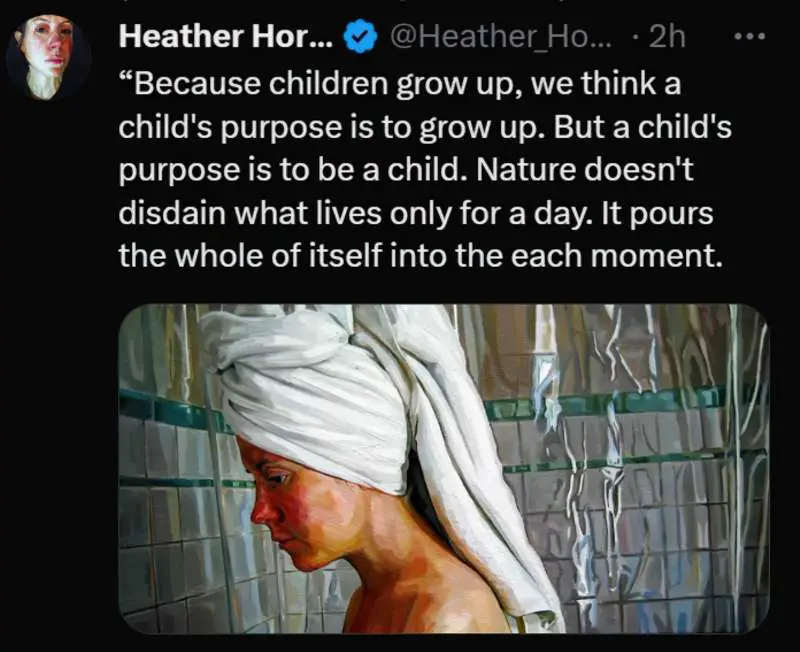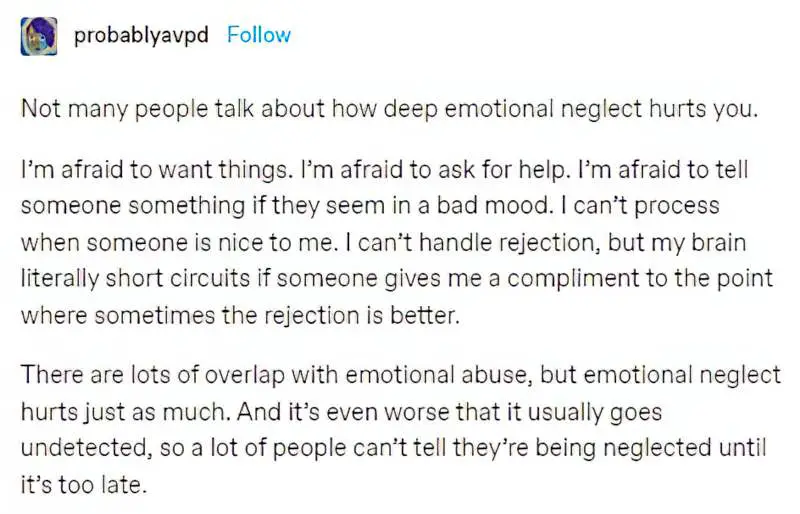Sometimes fiction explores a character dynamic which psychologists now have a word for: Covert incest. You sometimes also hear the phrases ’emotional incest’, ’emotional enmeshment’ and ’emotional parentification’.

Sometimes you will have to be more mature than your own parent. It will feel odd and unfair, like everything is off its place. It is not right for a child to be parent those who should be parenting them, so make that boundary clear, and remember that you can’t force a parent to grow up.
If they are adults and they haven’t matured, they probably won’t. You can’t take responsibilities that aren’t yours, it is not healthy for them and it is not healthy for you.
It is not your job to inverse the roles just because they haven’t learned how to behave like adults, and parenting them will only keep them stuck in those immature behaviours. They have to live their own lives, and you have to live yours.
akindplace on Tumblr
Enmeshment
Describes non-existent boundaries within a family dynamic.
Parentification
A child is forced to take on the emotional burden of that of a parent or caregiver.
Covert/Emotional Incest
Covert incest, or emotional incest, occurs when a parent or caregiver relies on a child for the support that an adult partner would usually provide.
For the child, this relationship just feels ‘icky’. ‘Icky’ is a general sort of word but a useful one to start with because it’s difficult for a child to know they’re in this dynamic. The child victim of sexual abuse may know very well it’s considered wrong. This form of abuse is far more subtle (or ‘covert’).
Typical Gender Dynamics
Mothers often pick their sons and fathers their daughters as proxy romantic partners, but not always. (Daughters are groomed by the entire society to be nurturing caregivers in supporting roles.)
Birth Order
The eldest child is often most at risk. This is entirely practical, and if the younger child were eldest, it would’ve been them. This statistic reveals the extent to which the adult really doesn’t care about the child as an individual human being. These adults care about what a child, any proximal child, can do for them.
Sharing of Secrets
The adult will say things like, “I can’t talk to anyone else the way I talk to you”, “You’re so mature”, “You’re such a good listener”. The adult will typically share things with the child the child is not allowed to tell anyone else, required to keep the caregiver’s secrets. This information will likely include very personal things about the other caregiver or private information about their sex life. The adult may relate the details of conversations and arguments had with the other caregiver behind closed doors, as a way of alienating the child from the other parent and claiming the child for their own.
There are different types of ‘grooming’
Note that these same phrases are used regularly by adults who groom children for sexual purposes. Covert incest follows the same pattern of grooming.
The adult groomer will often snoop unnecessarily, reading their private diaries, checking their phone and social media without reason to do so other than to gain more control. For the adult, the child is not a separate person. The adult may say things like, “I can do [X] if I want, you’re mine.”
The grooming works best when the adult encourages the child to feel important, like they hold a special power. The child may well feel important, but the flip side of that: They feel wholly responsible for keeping the family together. When the caregiving roles are reversed in this way, the child is effectively minus a parent.
Sexual Objectification
There is frequently sexual objectification of the child’s body by the adult, with the adult controlling how the child is supposed to look and dress. In this way, even when there is no sexual abuse (meaning sexual contact) this kind of abuse frequently contains a sexual component, as well as a romantic one.
Sometimes the child is voyeured by the adult. (The child watches the adult have sex, or is required to look at po*rn with the adult.)
The adult might choose one of the children in a family to use as their proxy romantic partner, or perhaps the adult doesn’t individuate the children and uses them all for this role.
Boundaries
When adults don’t respect boundaries, they often fail to set boundaries, too. (But sometimes they control every aspect of the child’s life, and the child would never be anywhere without the adult knowing about it, and exactly what they were up to.)
Mental Health
The children of covert incest tend to be anxious. An outsider can’t control anyone else’s relationship, but these children have been groomed to think that it’s their responsibility to keep adults in the family happy and emotionally supported. This responsibility in combination with the actual absence of power which comes with being a child is a recipe for anxiety.
Disordered eating is common in abused children.
Depression is also common, along with substance abuse.
Anxiety may find its outworking as perfectionism and straight (but very unhappy) As. Or it may translate to poor grades.
Both parents may be doing it
It’s sometimes the case that both caregivers are using one child or more than one child in this way. Typically it’s one parent using a child, in which case the other parent may have almost as much trouble working out what’s going on behind their back. Covert incest negatively affects the entire family dynamic and works at a deep level. Most people find it difficult to put into words.
The child may end up with no caregiver truly taking care of them because while one caregiver utilises them as a proxy romantic partner, the other is systematically alienated from them.
Multiple Child Families
If there are multiple children in the family, other children can feel neglected. Perhaps it’s not until they’re adults that they understand it was no better to be the ‘favourite’ child than the ‘ignored’ child. The abuser can swiftly switch allegiances to a different child if the groomed child realises what’s been going on and refuses to take any more of their crap.

Some of these adult groomers won’t shy away from declaring that they do, in fact, have a favourite child. “I can’t help it. It’s just the way it is. Some personalities just get on better.”
The other caregiver may latch onto, or ‘claim’ a non-groomed child as their own, creating more unhelpful and damaging allegiances and alliances within the family unit, which is no longer a ‘unit’ at all.
The Child’s Future Relationships
Until covert emotional abuse of children is named and confronted, the child will likely have boundary issues when they leave home and start romantic relationships of their own. Sadly, adults who were the victims of covert incest tend to attract romantic partners who use them in similar ways. They have been groomed to be the ‘fixers’ and the unpaid counsellors in a relationship, subsuming their own needs over the needs of their partner. When an adult uses their child in this way, they are setting the child up for a future of coercively controlling partners.
But there are impacts which stretch beyond the adult child’s romantic and sexual relationships. Covert incest sets up and models an entire pattern of (mis)communication. The child learns from keeping confidences and walking on eggshells as a young person that issues must not be dealt with directly. As adults, victims can ‘excessively triangulate’, attempting to resolve interpersonal issues in ineffective and, ultimately, unappreciated and damaging ways. No one taught child victims that direct communication is safe.
Like many kinds of domestic abuse, some abusers very much know what they’re doing. Others, while equally abusive, don’t have the emotional literacy or language to understand what havoc they wreak.
A Skewed Hippie Mentality
Adults who share sexual (or rather personalised, sexualised) information with their children may think they’re doing children a favour because they themselves grew up in repressed times and would like to parent in a more enlightened way. Many adults felt their own childhoods were far too repressive, but there was no modelling for non-repressive adult-child communication. Moreover, the Free Love era masked actual child abuse. (A different kind of child abuse, and the influence of 1960s setting, is explored by Poe Ballantine.)
Emotionally Immature Parents
Adult abusers, for a variety of reasons, use their child in this way because they don’t have the skills to foster mature relationships with other adults. It will therefore be more comfortable for them to foster a ‘relationship’ with someone entirely under their control. They may convince themselves that they are good with young people, whereas other, more boring adults have lost the knack, or whatever. They don’t tend to seek and maintain close adult friendships.
Intergenerational Impacts
This kind of abuse can be passed down through the generations until someone works out what’s going on and realises this is not a normal and loving way to parent a child/teen.
Signs of Emotional Incest
(via ThreadTherapist on Twitter)
- EXPECTING COMPLIMENTS/PRAISE FROM YOUR CHILD — your self-esteem is not your child’s responsibility
- HARING RESPONSIBILITY FOR ADULT DECISIONS SUCH AS FINANCES, EMPLOYMENT OR WHERE TO LIVE — kids should not be helping you make decisions like this
- SHOWING JEALOUSY WHEN YOUR CHILD SPENDS TIME AWAY FROM YOU — get your own friends/support system
- REQUIRING ALONE TIME WITH YOUR KIDS WHILE DISCOURAGING THEIR FRIENDSHIPS/RELATIONSHIPS — let them figure out how people are on their own! Your biases are getting in the way!
- TELLING THEM DEEP SECRETS OR INTIMATE INFORMATION
- CRYING & EXPECTING YOUR CHILD TO COMFORT YOU
- INVADING YOUR CHILD’S PRIVACY
- kids have boundaries that need to be respected TOO!
- SPENDING TIME WITH YOUR CHILD WHILE YOU ARE NUDE
- TALKING ABOUT YOUR SEXUAL ENCOUNTERS WITH YOUR KIDS
- PUTTING YOUR NEEDS BEFORE YOUR CHILD’S
- USING THE CHILD LIKE A LOVE-LIFE PARTNER: taking the child on dates
- BEING ENVIOUS OF YOUR CHILD’S ROMANTIC RELATIONSHIP: competing for attention, intruding on their relationship, attempting to sabotage their romantic relationships
How Emotional Incest Impacts Grown Children
If you’ve experienced emotional incest, you may:
- have a love-hate relationship with your parent
- feel inadequate & unworthy
- have difficulty forming lasting intimate relationships
- have feelings of abandonment towards the other caregiver that left
- have difficulty identifying and fulfilling personal needs because you’re used to caring for others
- have sexual dysfunction or sex addiction
- be prone to compulsive behaviour or other addictions
- ignore your own needs in favour of your parents needs
- feel responsible for the emotions of others
- engage in people-pleasing behaviours
- have trouble saying no
RELATED TERM
THE UNHOLY TRIANGLE
Terry Real, who has written extensively about men in relationships, describes a particular “unholy triangle” between “the powerful, irresponsible, and/or abusive father, the co-dependent, downtrodden wife, and the sweet son caught in the middle.”
These sons, he expands, become unhealthily enmeshed with their mothers, and as adults, they “become afraid of their own range of emotions.” They are kind souls who feel they must curtail their own feelings and take responsibility for the happiness of Mom and the women who follow.
Real calls this “intrusion trauma,” which lives not just in the psyche but in the body — hence its power to inhibit physical intimacy. [X] fits this pattern well, and it goes some way toward explaining why he feels so beholden to the women he loves, yet is unable to be aroused by them.
Esther Perel, The State of Affairs: Rethinking Infidelity
